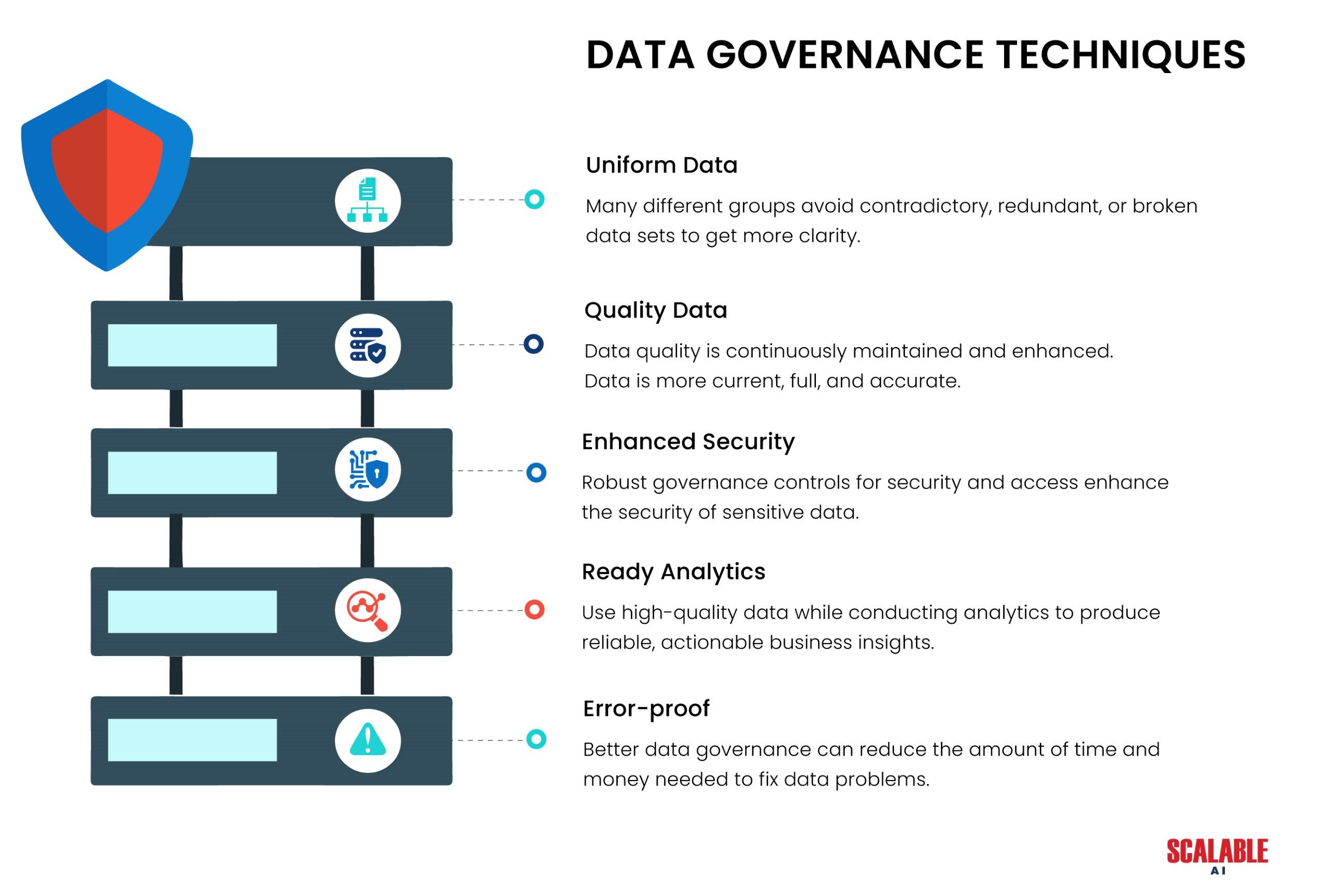It is an open secret that today modern corporate businesses face a deluge of data. Given the urgent issues surrounding data quality, security, and compliance, implementing a thorough data governance strategy becomes an absolute must rather than a “nice-to-have.”
Regretfully, still now companies are struggling with a comprehensive data governance plan. Without it, organizations cannot handle the flood of information or get the most value from it. Data Deluge certainly becomes an obstruction for business growth and progress.
However, when done well, data governance offers the framework for using data to reduce risk and gain a competitive edge and this is true for businesses in general. To ensure that everyone in the business understands how effective data management can benefit everyone, it is important to launch a cross-functional initiative early on and to have competent change management leading the way.
The Path to Brilliance
Across the organizations, data governance specifies who is responsible for what information. It includes all the information required to handle data as a valuable company asset, including policies, procedures, and data quality standards. Ideally, it is the basis, established before selecting operating models and technology.
Regretfully, studies show that most businesses only establish rudimentary or no data governance. This situation creates security risks, impairs data quality, and prevents cohesive visibility of information. According to a recent survey, fewer businesses have fully completed a data governance policy, while nearly 70% either approach the issue partially or lack a policy altogether.
On the other hand, businesses that implement contemporary data governance techniques stand to benefit greatly from the following:
Uniform Data Throughout the Board: Many different groups avoid contradictory, redundant, or broken data sets with aid from this. This helps them acquire a common information picture across business units and platforms. The more clarity, the better!
Enhanced Quality of the Data: Over time, data quality is continuously maintained and enhanced. Data is more current, full, and accurate.
Enhanced Security: Robust governance controls for security and access enhance the security of sensitive data, such as patient information.
Ready for Analytics: It is preferable to use high-quality data while conducting analytics to produce reliable, actionable business insights.
Error-proofing: By preventing mistakes and inconsistencies in the first place, governance can reduce the amount of time and money needed to fix data problems.

Setting the Stage: A Blueprint for Your Company’s Future
Most firms only implement unofficial data management procedures aimed at increasing productivity and providing value. Too frequently, stakeholders view data governance as an IT-only responsibility rather than as a cooperative, enterprise-wide endeavor.
The best course of action involves a cross-functional team that includes data owners, data subject matter experts (SMEs), and data stewards from throughout the organization. This strategy fosters engagement and promotes understanding. As you create or revise your data governance plan, assemble a cross-functional team to collaborate on the following questions:
What is the State of Your Business?
Recognize your organization’s objectives, vision, and direction in strategic positioning. Establishing a robust database is vital for effectively investigating technological developments, such as the GenAI upsurge.
Who is Taking Care of What Data and Where are Decisions Made?
Determine the important data stewards and owners for each business unit. Who is using data to create, consume, and make decisions?
Which Sources of Data are Relevant?
List the essential data resources. Give top priority to sources such as clinical trials, patients, R&D, manufacturing, commercial, and so on.
What essential requirements do various business units possess?
Make sure data governance addresses specific local needs in addition to those at the corporate level.
Navigating Change with Enthusiasm
A data governance strategy will bring new policies, procedures, technologies, and cultural shifts, therefore change management is essential. Data must be owned, accountable for, and stewarded across functions—not merely in a compartmentalized way. Important concerns that organizations need to address include: how will we strategically implement these changes? how do we win support from everyone in the company? What kind of training is required to adopt? among the actions are:
Starting from Scratch: Value stakeholder mapping, interviews, and workshops
Recognizing the Effects of Change: It may be the result of several functions, taking into consideration local and global conditions, and being in line with corporate strategy.
Choosing the Adoption Strategy: This aims to get staff members excited about the importance of having a sound data strategy.
Obtain Approval from Executives: It guarantees that the top leadership figures will be living up to their words.
High-quality data benefits everyone when it is built upon the correct foundation.
Conclusion
With Data Governance, you can enjoy
- Trusted Data for smarter decisions
- Adherence to regulations and a reduction in risk
- Greater availability of high-caliber data
- The basis for data-driven technologies such as GenAI and AI/ML
- Increased return on analytics investments
Without data governance, corporate organizations will struggle with security and quality and miss out on growth chances r growth. It’s time to seize the initiative and make the most of your data advantage.
Read Whitepaper Data Deluge: Taming the World of Big Data
